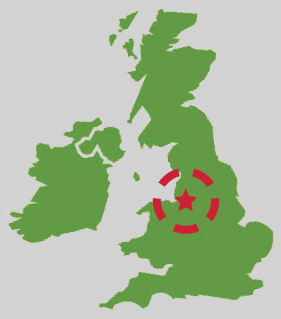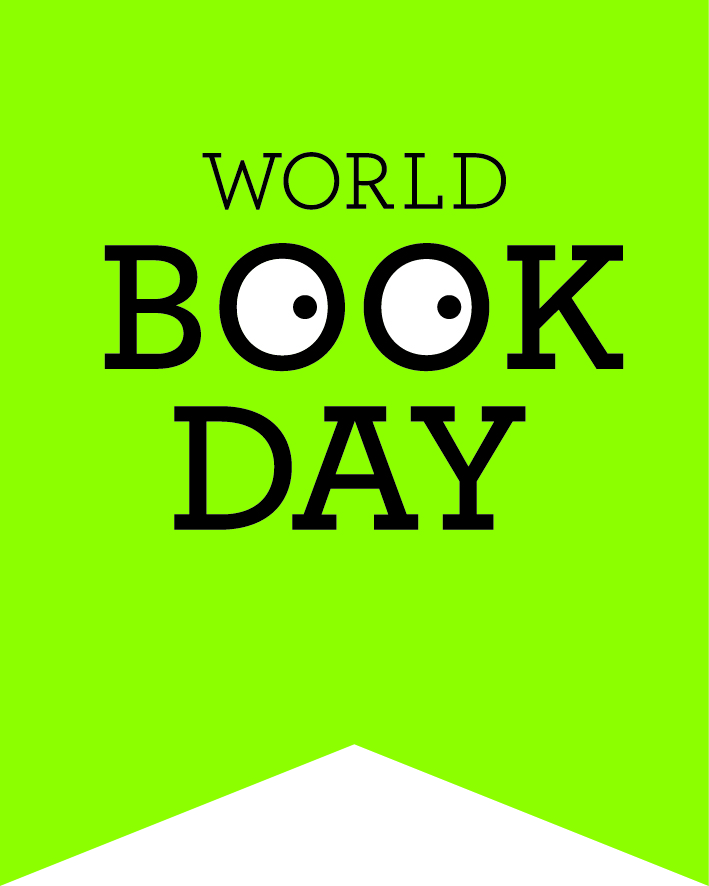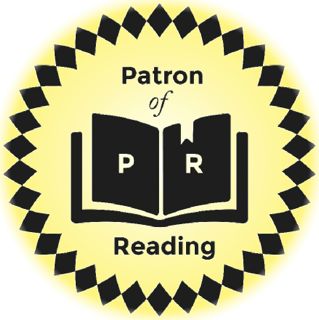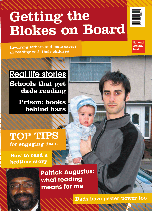
Getting the Blokes on Board A National Literacy Trust
project with Cheshire schools
"Getting the Blokes on Board" was a nationwide UK project co-ordinated by the National Literacy Trust (NLT). The aim was to involve fathers and male carers in reading with their children.
A cluster group of nine Cheshire schools (8 primary, 1 secondary) invited me to work with their children and the children's male carers (fathers, step-fathers, grandfathers, uncles, and a 'gruncle' – a great-uncle) in a series of workshop events in September and October 2008.
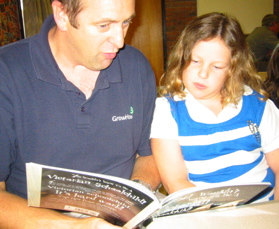
Pre-visit preparation
1. A book was selected – You Wouldn't Want to be a Victorian Schoolchild. This is a short illustrated non-fiction KS2 history text of about 3,000 words on 32 pages. It was chosen as it was felt likely to appeal to both children and adults.
2. A few days before my visit copies of the book were given to the children involved. They were asked by their schools to take the book home, and for their fathers / male carers to read the book to them (the whole book can be read in about 30 minutes).
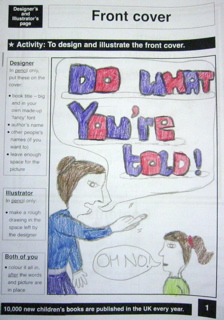
The visit: children's workshop – 2 to 2.5 hours
1. Children took part in a role-playing workshop to create their own non-fiction books with a Victorian school theme.
2. They worked collaboratively in teams of four in the roles of llustrator, Designer, Editor, Author.
3. They worked from a topic list of Victorian school themes and the book, You Wouldn't Want to be a Victorian Schoolchild.
4. The outcome for each group was a 16-page A4 non-fiction book.
The visit: children's and father's / male carer's workshop – 2 hours
1. Children returned to school with their fathers / male carers for an evening event.
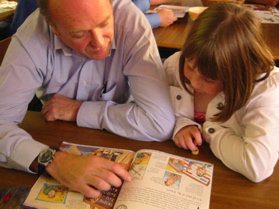
2. Each pair was asked to choose two pages from You Wouldn't Want to be a Victorian Schoolchild, and for the father / male carer to read it to their child.
3. After the reading, children interviewed their fathers / male carers. They were asked to give answers to 20 questions provided on a printed questionnaire. The questions were designed to find out if the father / male carer read at home to their child, what they read to them, what they read for their own pleasure, if they could recall books being read to them as a child, and so on. A summary of the answers is given below.
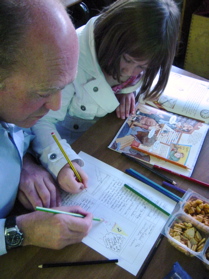
4. After the question and answer session, each pair worked together to produce a piece of written and illustrated work, based on the pages from You Wouldn't Want to be a Victorian Schoolchild that the father / male carer had earlier read to their child.
5. The outcome for each pair was a completed questionnaire giving a broad insight to reading habits at home, and an A4 sheet retelling the set text in their own words and pictures.
Summary of questionnaire answers
Child: "Why did you enjoy reading the book to me?"
Father / male carer:
"Because it is fun spending time with you." (child = 10)
"Because I like you to learn and understand." (child = 10)
"Because it has been many years since I have read out loud." (child = 10)
"Because it was very interesting and you were very enthusiastic and it was a wonderful way to spend half an hour." (child = 8)
"It was a good chance to spend time with you, sharing the experience of reading that we had not done recently." (child = 11)
"I learned some things as well as enjoying quality time with you." (child = 10)
Child: "What did you like the most about reading the pages to me tonight?"
Father / male carer:
"That you listened, and that it was something just you and me were doing."
"It was instructive."
"Seeing what feedback I got from you; answering the resulting questions."
Child: "Why do you think it's good to read books to me?"
Father / male carer:
"It allows us to spend time together and it finishes the day off nicely."
"It is a shared experience which we can both enjoy."
"It's a good time to relax and calm down before bed."
"Because I have enjoyed books so much over the years and would like you to enjoy them too."
"It promotes discussion of the subject of the book which can be expanded on with personal anecdotes."
"It gives you a better imagination."
"I can teach you new words and expressions."

